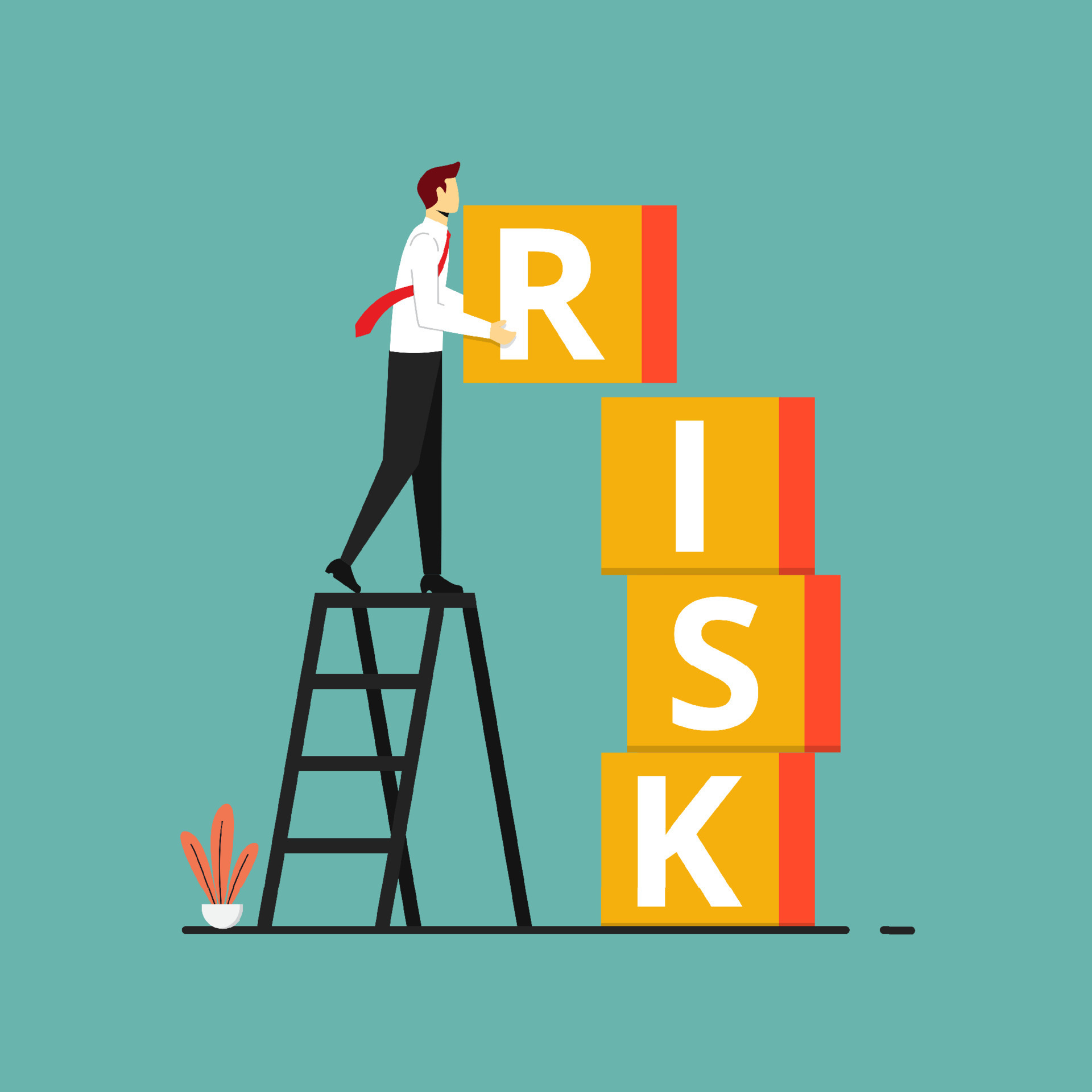Embracing Uncertainty as a Catalyst for Growth
Developing an entrepreneurial mindset that thrives in uncertain environments is crucial for success in today’s fast-paced business landscape. By embracing uncertainty as a catalyst for growth, entrepreneurs can unlock new opportunities, drive innovation, and stay ahead of the competition. Calculated risk-taking and adaptability are essential components of this mindset, enabling entrepreneurs to navigate complex challenges and capitalize on emerging trends.
Entrepreneurs with a high risk tolerance are more likely to experiment with new ideas, invest in untested markets, and challenge conventional wisdom. This willingness to take calculated risks can lead to breakthroughs in product development, marketing, and customer engagement. Moreover, adaptability is critical in responding to changing market conditions, customer needs, and technological advancements.
By cultivating an entrepreneurial mindset that is comfortable with uncertainty, business leaders can foster a culture of innovation and experimentation within their organizations. This, in turn, can lead to the development of new products, services, and business models that drive growth and competitiveness. Furthermore, entrepreneurs who are adept at managing uncertainty can better navigate the complexities of global markets, regulatory environments, and economic fluctuations.
As the business landscape continues to evolve, entrepreneurs must be able to adapt quickly to changing circumstances. By embracing uncertainty as a catalyst for growth, entrepreneurs can stay ahead of the curve, drive innovation, and achieve long-term success. By developing an entrepreneurial mindset that is comfortable with risk and uncertainty, business leaders can unlock new opportunities, drive growth, and build resilient organizations that thrive in today’s fast-paced business environment.
How to Develop a Risk-Tolerant Mindset as an Entrepreneur
Developing a risk-tolerant mindset is crucial for entrepreneurs who want to succeed in today’s fast-paced business environment. By cultivating a mindset that is comfortable with uncertainty and risk, entrepreneurs can make informed decisions, capitalize on opportunities, and drive growth. Here are some actionable tips and strategies for developing a risk-tolerant mindset:
Reframe fear as a catalyst for growth. Instead of viewing fear as a negative emotion, entrepreneurs can reframe it as a signal that they are pushing beyond their comfort zones. By embracing fear, entrepreneurs can develop a growth-oriented perspective that enables them to take calculated risks and pursue new opportunities.
Build resilience by developing coping mechanisms. Entrepreneurs can build resilience by developing coping mechanisms that enable them to manage stress, anxiety, and uncertainty. This can include practices such as meditation, exercise, and journaling, which can help entrepreneurs stay focused and motivated in the face of challenges.
Foster a growth-oriented perspective by embracing failure. Entrepreneurs who view failure as an opportunity for growth and learning are more likely to take risks and pursue new opportunities. By embracing failure, entrepreneurs can develop a mindset that is focused on learning and improvement, rather than fear and avoidance.
Develop a risk assessment framework. Entrepreneurs can develop a risk assessment framework that enables them to evaluate potential risks and opportunities. This can include tools such as SWOT analysis, decision trees, and scenario planning, which can help entrepreneurs make informed decisions and mitigate potential risks.
Surround yourself with supportive people. Entrepreneurs who surround themselves with supportive people are more likely to take risks and pursue new opportunities. By building a network of mentors, peers, and advisors, entrepreneurs can gain valuable insights, advice, and encouragement that can help them develop a risk-tolerant mindset.
The Psychology of Risk Tolerance: Understanding Your Personal Threshold
Risk tolerance is a complex psychological construct that is influenced by a variety of factors, including personality traits, past experiences, and cognitive biases. Understanding your personal risk tolerance threshold is essential for developing an entrepreneurial mindset that is comfortable with uncertainty and risk.
Personality traits, such as extraversion and conscientiousness, can play a significant role in shaping an individual’s risk tolerance. For example, individuals who are high in extraversion tend to be more open to new experiences and are more likely to take risks. On the other hand, individuals who are high in conscientiousness tend to be more cautious and risk-averse.
Past experiences, including successes and failures, can also influence an individual’s risk tolerance. For example, individuals who have experienced success in the past may be more likely to take risks, while those who have experienced failure may be more cautious. Additionally, cognitive biases, such as confirmation bias and availability heuristic, can also impact an individual’s risk tolerance.
Confirmation bias, for example, can lead individuals to overestimate the likelihood of success and underestimate the likelihood of failure. Availability heuristic, on the other hand, can lead individuals to overestimate the importance of vivid, memorable events and underestimate the importance of more mundane, everyday events.
Understanding these psychological factors can help entrepreneurs develop a more nuanced understanding of their own risk tolerance and make more informed decisions about risk-taking. By recognizing the cognitive biases and personality traits that influence their risk tolerance, entrepreneurs can develop strategies to mitigate these biases and make more rational decisions.
For example, entrepreneurs can use decision-making frameworks, such as cost-benefit analysis, to evaluate potential risks and opportunities. They can also seek out diverse perspectives and feedback from others to help mitigate the influence of cognitive biases.
Real-Life Examples of Entrepreneurial Risk-Takers: Lessons from the Trenches
Entrepreneurs who have successfully navigated high-risk environments offer valuable insights into the importance of developing an entrepreneurial mindset that is comfortable with uncertainty and risk. One such example is Sara Blakely, the founder of Spanx, who turned a simple idea into a multimillion-dollar business by taking calculated risks and embracing uncertainty.
Blakely’s story is a testament to the power of entrepreneurial risk-taking. With no experience in the fashion industry, she bootstrapped her business and took a risk by investing her own savings into the company. Her willingness to take risks and adapt to changing circumstances enabled her to overcome numerous challenges and build a successful brand.
Another example is Richard Branson, the founder of Virgin Group, who has built a business empire by taking bold risks and embracing uncertainty. Branson’s approach to entrepreneurship is characterized by his willingness to challenge conventional wisdom and take calculated risks. His ability to adapt to changing circumstances and navigate uncertain environments has enabled him to build a successful business that spans multiple industries.
These examples illustrate the importance of developing an entrepreneurial mindset that is comfortable with uncertainty and risk. By embracing uncertainty and taking calculated risks, entrepreneurs can unlock new opportunities, drive growth, and build successful businesses. The key takeaways from these examples include the importance of adaptability, resilience, and a growth-oriented perspective.
Entrepreneurs can learn from these examples by adopting a similar approach to risk-taking and uncertainty. By embracing uncertainty and taking calculated risks, entrepreneurs can develop a mindset that is comfortable with risk and uncertainty, enabling them to navigate high-risk environments and build successful businesses.
Assessing and Managing Risk in Your Business Venture
Assessing and managing risk is a critical component of entrepreneurial success. By understanding the potential risks and opportunities associated with their business venture, entrepreneurs can make informed decisions and develop strategies to mitigate potential threats. One effective way to assess and manage risk is to use a risk assessment framework, such as the SWOT analysis.
SWOT analysis is a tool that helps entrepreneurs identify the strengths, weaknesses, opportunities, and threats associated with their business venture. By conducting a SWOT analysis, entrepreneurs can gain a deeper understanding of the potential risks and opportunities associated with their business and develop strategies to mitigate potential threats.
Another effective way to assess and manage risk is to use a decision tree. A decision tree is a visual representation of the potential outcomes associated with a particular decision. By using a decision tree, entrepreneurs can evaluate the potential risks and opportunities associated with a particular decision and make informed choices.
In addition to using risk assessment frameworks and decision trees, entrepreneurs can also use other tools and techniques to assess and manage risk. For example, entrepreneurs can use scenario planning to anticipate potential risks and opportunities and develop strategies to mitigate potential threats.
Scenario planning involves identifying potential scenarios that could impact the business and developing strategies to mitigate potential threats. By using scenario planning, entrepreneurs can anticipate potential risks and opportunities and develop strategies to mitigate potential threats.
By using these tools and techniques, entrepreneurs can assess and manage risk effectively and make informed decisions about their business venture. By understanding the potential risks and opportunities associated with their business, entrepreneurs can develop strategies to mitigate potential threats and capitalize on potential opportunities.
The Role of Mentorship in Shaping Entrepreneurial Mindset
Mentorship plays a crucial role in shaping an entrepreneurial mindset, particularly in navigating uncertain environments. A mentor can provide guidance, support, and networking opportunities that can help entrepreneurs develop a risk-tolerant mindset and overcome common obstacles to risk-taking.
A mentor can offer valuable insights and advice based on their own experiences, helping entrepreneurs to develop a more nuanced understanding of the risks and opportunities associated with their business venture. Additionally, a mentor can provide emotional support and encouragement, helping entrepreneurs to build confidence and self-efficacy.
Networking is another key benefit of mentorship. A mentor can introduce entrepreneurs to other business leaders, investors, and industry experts, providing access to valuable resources and opportunities. This can help entrepreneurs to build relationships, secure funding, and stay ahead of the competition.
Furthermore, a mentor can help entrepreneurs to develop a growth-oriented perspective, encouraging them to take calculated risks and pursue new opportunities. By fostering a culture of experimentation and innovation, a mentor can help entrepreneurs to stay adaptable and responsive to changing circumstances.
Entrepreneurs can find mentors through various channels, including business incubators, accelerators, and networking events. They can also seek out mentors through online platforms, such as LinkedIn or MentorNet. By finding the right mentor, entrepreneurs can gain the guidance, support, and networking opportunities they need to develop a risk-tolerant mindset and achieve success.
In addition to finding a mentor, entrepreneurs can also seek out peer support groups or mastermind groups. These groups provide a safe and supportive environment where entrepreneurs can share their experiences, receive feedback, and learn from others. By surrounding themselves with like-minded individuals, entrepreneurs can build a supportive community that encourages risk-taking and innovation.
Overcoming Fear and Self-Doubt: Strategies for Building Confidence
Fear and self-doubt are common obstacles to risk-taking, particularly for entrepreneurs who are new to the business world. However, by developing strategies to overcome these obstacles, entrepreneurs can build confidence and self-efficacy, enabling them to take calculated risks and pursue new opportunities.
One effective way to overcome fear and self-doubt is to reframe negative thoughts and focus on positive outcomes. By reframing fear as a natural response to uncertainty, entrepreneurs can begin to view risk-taking as a necessary step towards growth and success. Additionally, by focusing on positive outcomes, entrepreneurs can build confidence and develop a more optimistic outlook.
Another effective way to overcome fear and self-doubt is to develop a growth mindset. By viewing challenges as opportunities for growth and learning, entrepreneurs can develop a more resilient and adaptable mindset, enabling them to navigate uncertain environments with greater ease.
Imposter syndrome is another common obstacle to risk-taking, particularly for entrepreneurs who are new to the business world. However, by recognizing the symptoms of imposter syndrome and developing strategies to overcome it, entrepreneurs can build confidence and self-efficacy, enabling them to take calculated risks and pursue new opportunities.
One effective way to overcome imposter syndrome is to seek out support and guidance from mentors, peers, and industry experts. By surrounding themselves with people who believe in their abilities, entrepreneurs can build confidence and develop a more positive self-image.
Additionally, by focusing on their strengths and accomplishments, entrepreneurs can develop a more positive self-image and overcome imposter syndrome. By recognizing their achievements and celebrating their successes, entrepreneurs can build confidence and develop a more resilient mindset, enabling them to take calculated risks and pursue new opportunities.
Sustaining a Risk-Tolerant Mindset Over Time
Sustaining a risk-tolerant mindset over the long term requires continuous learning, self-reflection, and adaptability in the face of changing circumstances. By incorporating these strategies into their daily lives, entrepreneurs can maintain a risk-tolerant mindset and continue to drive growth and innovation in their businesses.
Continuous learning is essential for maintaining a risk-tolerant mindset. By staying up-to-date with the latest trends and developments in their industry, entrepreneurs can identify new opportunities and stay ahead of the competition. This can involve attending conferences and seminars, reading industry publications, and seeking out mentorship and guidance from experienced professionals.
Self-reflection is also critical for maintaining a risk-tolerant mindset. By regularly reflecting on their experiences and decisions, entrepreneurs can identify areas for improvement and develop strategies for mitigating potential risks. This can involve keeping a journal, seeking out feedback from others, and engaging in regular self-assessment and evaluation.
Adaptability is also essential for maintaining a risk-tolerant mindset. By being open to new ideas and perspectives, entrepreneurs can stay flexible and responsive to changing circumstances. This can involve seeking out diverse perspectives, being willing to pivot when necessary, and staying focused on their long-term goals and objectives.
By incorporating these strategies into their daily lives, entrepreneurs can maintain a risk-tolerant mindset and continue to drive growth and innovation in their businesses. By staying adaptable, continuously learning, and regularly reflecting on their experiences and decisions, entrepreneurs can build a strong foundation for long-term success.
Ultimately, sustaining a risk-tolerant mindset requires a commitment to ongoing learning and growth. By prioritizing these values and incorporating them into their daily lives, entrepreneurs can build a strong foundation for long-term success and drive growth and innovation in their businesses.






